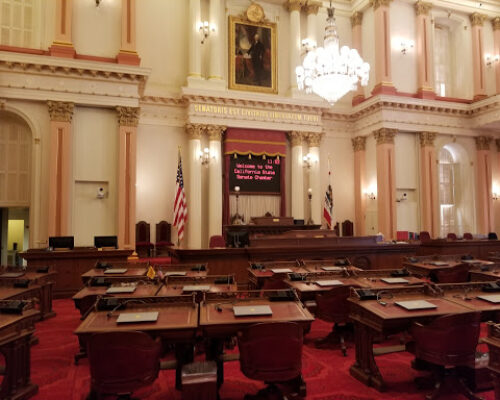
The final week of August brings with it the Legislature’s last few days to send critical legislation to the Governor’s desk. On August 20th both the Senate and the Assembly Appropriations Committees convened to hear bills on the suspense file from the opposite house. The final fiscal hearings in both chambers saw a significant reduction in the number of measures moving forward this year. Unfortunately, major housing measures were held in committee in both houses. In the Assembly, SB 1410 (Caballero), the Senate’s COVID tenant protection measure, SB 899 and SB 902, both authored by Senator Wiener, failed, despite ongoing stakeholder negotiations. In the Senate, AB 2323 (Friedman) and AB 3040 (Chiu) were casualties of bicameral disputes, which have been particularly challenging this year due in large part to the expedited timeline and the inability to convene critical stakeholders for key discussions necessary for complex legislation. In a final climactic showdown highlighting the house wars that marked the end of session, the Senate Appropriations Committee withdrew their passage of AB 1436 (Chiu), the Assembly’s COVID tenant relief bill, and rereferred the bill to Senate Rules Committee.
It will be a race to the finish line with a week remaining before the end of session deadline of August 31st. Bills will have to make it through the second house, with many then required to go back to the house of origin for a concurrence vote on any amendments before being eligible to head to the Governor for his signature.
Remaining on Habitat California’s supported list are the following important measures:
- AB 1851 (Wicks): Requires a local agency to ministerially approve a request to reduce or eliminate any parking requirements on the development if the housing development project qualifies as a religious institution affiliated housing development project.
- AB 2553 (Ting): Emergency Homeless Shelters. Based on the successful AB 932 pilot applied to Oakland, Berkeley, and San Jose, extends single-city pilot to the State for five years flexible standards needed to get homeless shelters built quickly and safely by imposing safety standards reviewed by HCD rather than the strict application of State Building Code to streamline.
- AB 2345 (Gonzalez): This bill would increase financial incentives within density bonus law to make it easier for developers to qualify and utilize this important tool.
- SB 1085 (Skinner): This bill would require a city or county to grant a density bonus if the developer agrees to construct a housing development that will contain that specified percentage of units for persons and families of moderate income.
- SB 995 (Atkins): This bill would expand the application of streamlining the CEQA process to smaller housing projects that include at least 15 percent affordable housing. It also would broaden application and utilization of the Master Environmental Impact Report (MEIR) process, which allows cities to do upfront planning that streamlines housing approvals on an individual project level. The bill would extend and expand a program that has generated 10,573 housing units and created nearly 47,000 jobs since 2011.
- SB 1120 (Atkins): Builds off state Accessory Dwelling Unit (ADU) law that allows for at least three units/parcel; further encourages small-scale neighborhood development spearheaded by homeowners by creating a ministerial approval process for duplexes and lot splits that meet local zoning, environmental and tenant displacement standards.
